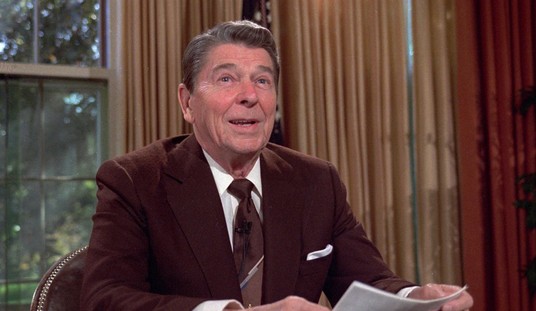For some, the journey to faith in Christ is an easy one. The required spiritual, emotional, and intellectual assents seem to come naturally. For others, the path from unbelief to faith is much more complicated, moving along a jagged path filled with seemingly insurmountable hurdles. Such was Andrew Klavan’s long sojourn from secular Jew to faith in Christ as described in his book, The Great Good Thing: A Secular Jew Comes to Faith in Christ.
Raised in a nominally Jewish family by parents who did not believe in God, Klavan rejected Judaism around the time he was forced to make his bar mitzvah. He says he felt shame and rage afterward “at having been forced to violate my deepest sense of things.”
His rejection of the religious aspects of Judaism would complicate his relationships with family members—his father in particular—and lead him to examine at length his cultural identity. What did it mean to be Jewish and how did that part of his story fit into the larger story of America and the stories of the Western tradition that he would one day grow to love so much? Judaism and religion to him were symbols of hypocrisy and he wandered down the path of agnosticism, adopting a cultural elitism that became a religion of sorts to him.
In The Great Good Thing Klavan walks readers through his troubled childhood in a home that most would describe as abusive, although he seems to take great pains to deal charitably with his parents, even while describing painful experiences. From his childhood in Great Neck, New York, to the roller coaster of his adult life, there are years of angst and madness and Klavan’s transparency and his gifted storytelling transport the reader into the darkest corners of his life. Parts of it are not easy to witness, yet Klavan’s wit and sardonic observations keep from dragging the book down too much.
Eventually some glimmers of light emerge as he begins to recognize how his long-held prejudices about education have kept him from discovering the truth and beauty in the Great Conversation centered on the Western canon. Klavan’s dogged determination to educate himself, overcoming his self-imposed academic exile, is admirable and worthy of imitation. The secrets to Klavan’s success as a writer—the things that make him such a joy to read—are revealed, in part, in his descriptions of his disciplined reading and writing schedules, and his desire to write sentences that are “clean and clear,” striving to say things in “a way people could understand.” As basic as this sounds, it’s often something that’s a challenge for writers, who opt instead for flowery language and an abundance of multi-syllabic adjectives.
“I was—I am—a worlding by nature,” Klavan admits. “I was delighted by the world, by which I don’t mean just the sunshine, trees, and twittering bluebirds but also sex, money, gossip, a good single malt, the crooked hilarity of politics, and the bizarre little lies and betrayals that make up our relationships, especially our relationships with ourselves. This was the stuff of the novels I wrote and the novels I read, of the plays and movies I went to and the television I watched, not to mention the news stories and histories that made me shake my head and laugh at the everlasting circus of human corruption.”
Yet somehow, this unlikely pilgrim found his way to the foot of the cross of Jesus Christ. “No one could have been more surprised than I was,” he says in the introduction. As a man who believed in science and reason he held Christians in derision. He “despised even the ordinary varieties of willful blindness to the tragic shambles of life on earth” that he saw in the lives of Christians.
God’s gentle nudges are evident—to the reader at least—in Klavan’s life from an early age and continue even in his worst moments, although they seem evident to Klavan only in retrospect. As he considers his conversion, Klavan says that God spoke to him in a language he understood. “It was stories,” he says. “It was literature. He came to me that way.”
Klavan was fifteen when he began to understand the centrality of Christianity to the stories of the Western tradition. “It was Christian ideas that had powered European culture, and it was belief in those ideas that had fallen when Europe’s culture fell,” he writes. “I was only a boy still and I didn’t understand much, but I began to understand that at the heart of all Western mythology, all Western civilization, all Western writing, all Western thought, and every Western ideal, there stood a single book, the Bible and a single man, Jesus of Nazareth.”
Decades later, after a breakthrough in his therapy that he says enabled him to think clearly and trust his feelings, Klavan noticed a change. He writes, “For others, I know it was Christ who led them to joy. For me, it was joy that led me to Christ.” He eventually found himself praying. Tentatively at first, but then with increasing fervor and purpose, he began to have a relationship with something or someone. He wasn’t sure at first whether he was talking into the air or communing with the Almighty. The possibility of a religious conversion initially seemed absurd to him.
But then, years into his prayer habit, he asked God what he should be doing and God said he should be baptized. Again, this seemed absurd to him.
“Nothing could have been further from my mind,” he writes. “I thought I had moved beyond all that. Religions, doctrines, scriptures—I figured I had left them all behind. I had formed a personal relationship with the creator of heaven and earth. The last thing I wanted was some church or some preacher yammering at me about what that relationship was supposed to mean, or what rules I should follow or what rites I should perform or really about anything.”
Spiritual, not religious, as they say.
But over the years he had come to understand the corruption of the human heart and the deceptions of the mind. And he had learned that a converse to this also existed: that a heart prone to deception must also be able to “know things rightly.” He was certain he had heard the call to baptism clearly and so he set about trying to define his theology. What he discovered surprised him.
Upon examination Klavan realized that he was “in theory” and “philosophically” a Christian. He believed in the basic propositional truths of the Christian faith: God as Father and loving Creator. The Holy Spirit. Communication between God and man through prayer. That man is made in God’s image. Still, there was one thing for him to settle before he could commit to baptism.
“In order for me to accept the call to baptism,” he writes, “it was not enough for me to believe in the possibility of Christ—Christ in theory.” Klavan says he needed for the Jesus story to be “true on every level” and further, to believe that Christ’s life “proved and fulfilled the Bible’s story of God.” He needed to believe all of it—not just the reality of Christ’s life, but his miracles, death, and resurrection.
And herein lies the difference between an amorphous spirituality and true Christianity. The latter is spiritual, certainly, but also dependent on certain propositional truths. Klavan came to terms with the latter and ultimately decided to be baptized.
Even so, the baptism decision was a difficult one and questions remained. “To kneel instead before this marble font, beneath the upraised hand of this bronze boy John, to declare in this church that Jesus Christ was Lord and to accept the uniquely salvific truth of his life and preaching, death and resurrection—this, it seemed to me even in the moment, was to renounce my natural place in the age, to turn against my upbringing and my kind.”
He feared that Christianity would be a rejection of the intellectual pursuits he’d dedicated his life to. He worried that his baptism would render him unable to write about the realities of life as he saw them and he was terrified that he’d be relegated to a life of writing vapid Christian novels—egads! He also knew that many would view his baptism as a rejection of his family and his Jewish heritage.
Some have criticized Klavan for rejecting something they say he never bothered to study or understand, namely orthodox Judaism. While it’s true that the book doesn’t describe a spiritual or intellectual examination of the tenets of Judaism, assuming that he avoided or refused to engage in such an examination seems uncharitable. (And for the Christian, of course, the Jewish faith is intrinsically intertwined with ours.) In the Acknowledgements, Klavan notes that the first draft of the book was a “sloppy monster, twice as long as this.” It’s easy to see how it could have grown quite unwieldy—and been much less approachable—without the hand of a wise (and brutally honest) editor (his wife Ellen). I found myself wondering at times about various points of doctrine, asking what Klavan believed about this particular point or that. But in the end, I had to admit that the book was better for not having been sidetracked by these secondary issues.
While never preachy or heavy-handed, the beauty and truth of the Gospel are woven into Klavan’s life story, which he has told on his terms, highlighting the parts that are important to him. Life and faith are sometimes messy and I suspect it must have been difficult for Klavan, who prides himself on storylines that make sense, to leave this one open-ended. But such is the nature of memoirs. The Great Good Thing is a thoroughly enjoyable read, but also a book that is spiritually honest and intellectually thoughtful.










Join the conversation as a VIP Member